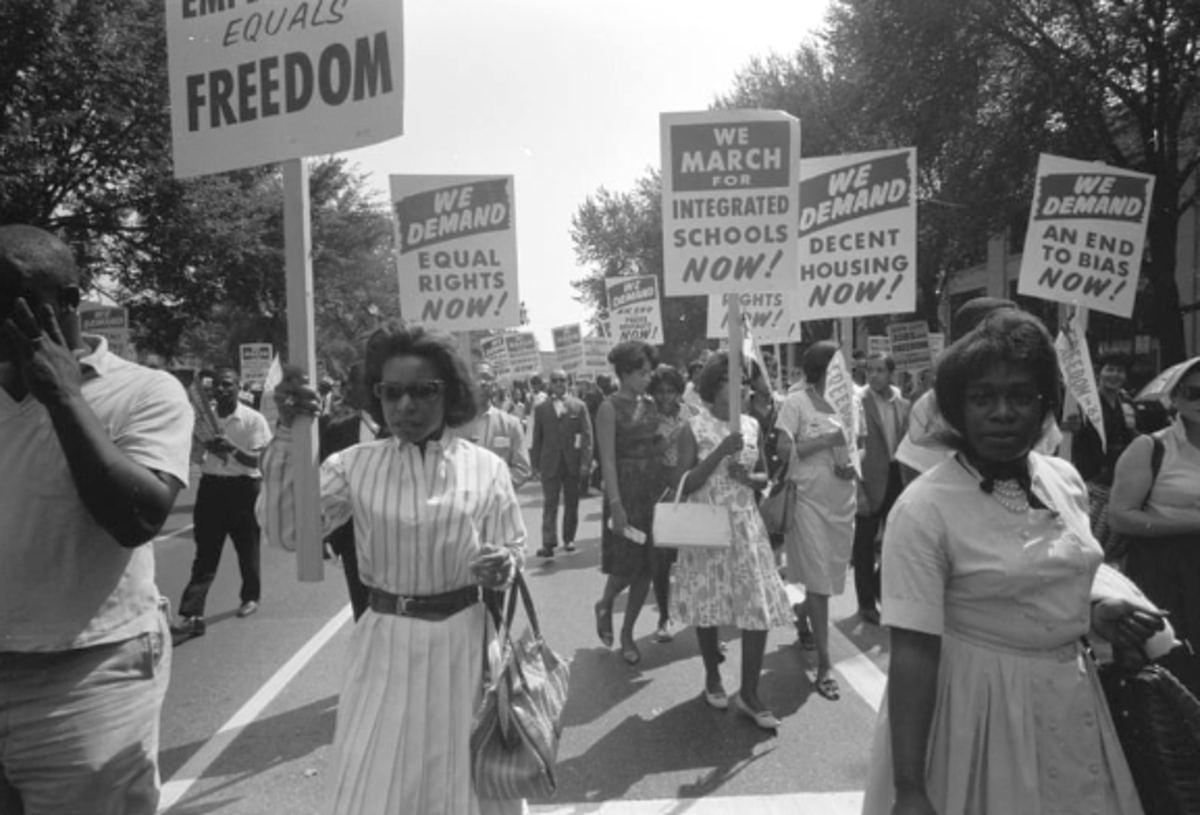Initial Victory in California
Initial Victory in California
NOTE THAT THIS ARTICLE WAS WRITTEN BEFORE THE VOTERS OF THE STATE OF CALIFORNIA AMENDED THE STATE CONSTITUTION TO EXPLICITLY REJECT GAY MARRIAGE IN THAT STATE.
It appears likely that the California Supreme Court will uphold Proposition 8, thus preventing additional gay couples from marrying in the State of California; however, the silver lining of this bleak cloud is that it also appears that the court will uphold the 18,000 gay marriages that had already been solemnized before Proposition 8 took effect in November 2008...
WRITTEN ON Sunday, October 5, 2008
I am profoundly grateful to Chief Justice George of the California Supreme Court, and the other three members of the majority, who voted to legalize gay marriage in California (in re Marriage Cases, S147999 (2008) 08 C.D.O.S. 5820). By relying entirely on interpretation of the state constitution’s guarantees of due process and equal protection, without placing any reliance on the Due Process or Equal Protection Clauses of the US Constitution’s Fourteenth Amendment, the majority ensured that this decision is immune to review by the US Supreme Court (cases involving adjudication of only the state constitution may not be reviewed by any Article III court under our system of judicial federalism). I have yet to hear any coherent argument against gay marriage; those who oppose gay marriage frequently make a great deal of noise, but their arguments ring increasingly tired and hollow.
What should be noted is the major influence that Lawrence v. Texas, 539 U.S. 558 (2003) had on the majority opinion (although, as noted above, the majority did not place reliance on this decision). The Lawrence Court explicitly and bluntly overturned Bowers v. Hardwick, 478 U.S. 186 (1986) (“Bowers was not correct when it was decided, and it is not correct today. It ought not to remain binding precedent. Bowers v. Hardwick should be and now is overruled.”). The Lawrence Court implicitly apologized to the gay community for the manner in which it had demeaned gay Americans (“The central holding of Bowers has been brought in question by this case, and it should be addressed. Its continuance as precedent demeans the lives of homosexual persons.”). What is noteworthy about Lawrence is the fact that the Court held that Bowers was badly decided at the time that it was handed down; usually, the Court overturns decisions with which it no longer agrees by adducing societal changes as justification for overruling such decisions (for example, in striking down the death penalty as applied to mentally retarded individuals (Atkins v. Virginia, 536 U.S. 304 (2002) and in cases where the perpetrator was a juvenile at the time that he or she committed the crime in question (Roper v. Simmons, 543 U.S. 551 (2005)). In the above two cases (and in Eighth Amendment "cruel and unusual punishment" jurisprudence more generally), the Court relied upon objective criteria indicative of changing societal norms, in accordance with its holding that the Eighth Amendment’s prohibition of cruel and unusual punishments “draw[s] its meaning from the evolving standards of decency that mark the progress of a maturing society.” (Trop v. Dulles, 356 U.S. 86 (1958))). In Lawrence, the Court was honest enough to admit that it had made a serious mistake in Bowers, acknowledging “…the Court's own failure to appreciate the extent of the liberty at stake.” The Court went on to admit that “[t]o say that the issue in Bowers was simply the right to engage in certain sexual conduct demeans the claim the individual put forward, just as it would demean a married couple were it to be said marriage is simply about the right to have sexual intercourse.”
The California Supreme Court drew an analogy to what the US Supreme Court had done in Lawrence. Instead of framing the issue in terms of whether or not the California state constitution grants a right to “same-sex marriage,” the court first identified marriage as a “fundamental right” under the relevant California state court precedents (e.g. Ortiz v. Los Angeles Police Relief Assn. (2002) 98 Cal.App.4th 1288, 1303; in re Carrafa, (1978) 77 Cal.App.3d 788, 791), and then asked whether the state could meet the burden of “strict scrutiny” to justify limiting marriage to opposite-sex only couples. The adoption of this paradigm lay at the heart of the decision; the court compared this case to its decision in Perez v. Sharp, 32 Cal.2d 711 (1948) (declaring the state’s prohibition of interracial marriages ("miscegenation") to be violative of the state constitution’s guarantees of substantive fairness and equal protection). The court, in Perez, did not address the issue in terms of whether the state constitution granted a right to “interracial marriage” – rather, the court addressed the issue of whether or not interracial couples could be denied the right to marry. In in re Marriage Cases, the court addressed the issue of whether or not gay couples could be denied the right to marry. The court invoked much of the analysis of Chief Judge Judith Kaye of the New York Court of Appeals (this is the highest state court in the State of New York). In her dissent in the New York gay marriage case (Hernandez v. Robles, 7 N.Y.3d 338 (2006)), in which the gay plaintiffs lost, Kaye eloquently declared that “Simply put, fundamental rights are fundamental rights. They are not defined in terms of who is entitled to exercise them.”
At least as important as the judgment in in re Marriage Cases was a crucial aspect of the court’s reasoning. The court held that classifications on the basis of sexual orientation are “suspect,” and that gay men and lesbians constitute a “suspect class” for the purposes of equal protection analysis. This is an extremely important legal development. Legislation that adversely impacts members of a “suspect class” must be subjected to the highest level of judicial scrutiny, referred to as “strict scrutiny.” Under the relevant California precedents, “strict scrutiny” requires that the state demonstrate that the challenged legislation promotes a “compelling” state interest, and that the challenged legislation is “necessary” to promote that interest. In other words, the challenged legislation must promote a state interest of crucial importance (examples include national security and the protection of life itself); furthermore, the state must prove beyond a reasonable doubt that only by implementing the challenged legislation can that interest be promoted. Note that this standard is similar to “strict scrutiny” in federal equal protection jurisprudence. Strict scrutiny in federal equal protection jurisprudence requires that the state demonstrate the existence of a compelling state interest, and that the legislation in question must impinge the disadvantaged group in the “least restrictive” manner possible; that is to day, the legislation must be “narrowly tailored” so as to sweep no more broadly than is essential to promote the interest in question (see Heller v. Doe, 509 U.S. 312 (1993)). Even if the court’s decision is overturned by the voters in November 2008 (a measure will appear on the ballot to amend the state constitution to define marriage as being limited to one man and one woman only), this aspect of the court’s reasoning will not be, and cannot be, disturbed. Assuming passage of the amendment, legislation that classifies on the basis of sexual orientation must now be subjected to strict scrutiny by lower courts throughout the state.
Currently, the State of California offers “domestic partnerships” to same-sex couples who choose to avail themselves of this option. These partnerships are substantively almost identical to marriages, and the court engaged in an extended discussion as to whether or not these partnerships constitute an adequate alternative to marriage. The court concluded that the existence of such a two-tiered system created the very real danger that relationships between gay couples would be treated with less dignity and respect than relationships between heterosexual couples. The court further noted, with extraordinary eloquence, that “because of the widespread disparagement that gay individuals historically have faced, it is all the more probable that excluding same-sex couples from the legal institution of marriage is likely to be viewed as reflecting an official view that their committed relationships are of lesser stature than the comparable relationships of opposite-sex couples and providing only a separate and distinct designation for same-sex couples may well have the effect of perpetuating a more general premise – now emphatically rejected by this state – that gay individuals and same-sex couples are in some respects “second-class citizens” who may, under the law, be treated differently from, and less favorably than, heterosexual individuals or opposite-sex couples.” The court also noted that acknowledgment by a person that he or she is in a domestic partnership effectively constitutes acknowledgement by that person that he or she is gay; the very term “domestic partnership” denotes a registered gay relationship, whereas the term “marriage,” if retained exclusively for registered heterosexual relationships and used in the same contexts, denotes a registered heterosexual relationship. Thus the very term “domestic partnership”, when used by a person to describe his or her relationship status, constitutes a public acknowledgement of that person’s sexual orientation – an acknowledgement not demanded of similarly situated heterosexual, married persons.
As alluded to above, it is possible that the California state constitution may be amended by the voters through the referendum process in November 2008 to define marriage as a union of only one man and one woman. The tangible, substantive effects of such an amendment would not be nearly as deleterious as was the case in (for example) the State of Nebraska, in which state the recognition of all same-sex relationships was explicitly prohibited by a state constitutional amendment enacted in 2000 (this amendment prohibited the recognition not just of gay marriages, but also the recognition of civil unions, domestic partnerships, and any similar statutory arrangements). This is because California domestic partnerships would not be nullified by the proposed constitutional amendment. Immediately following the handing down of in re Marriage Cases on May 15, 2008, polls indicated that a narrow majority favored enactment of the proposed amendment. However, a Field Poll result released on May 28, 2008 indicated that 51% of registered voters favored allowing gay couples to wed, with only 42% disapproving. Although a coalition of states and right-wing pressure groups has petitioned the court to stay its decision until after the November elections, it appears likely that gay couples will be permitted to marry within the next two or three weeks. This is the first time that a majority of citizens of a state have favored gay marriage. In the event that the court allows such marriages to proceed, voters will be faced with the prospect of dissolving existing gay marriages in November – a very different matter from prohibiting such marriages from being solemnized in the first place.
It remains to be seen whether those Californians who know gay couples will vote to dissolve the marriages of their friends, family members, and colleagues. Regardless of the outcome in November 2008, political commentators believe that this reflects a turning point in relationships between gay and heterosexual Americans.
PHILIP CHANDLER
Centrefolds...

Justice at Last -- Gay Equality in America
- Justice at Last -- Gay Equality in America
Gay Equality, the Right to Privacy, and Substantive Due Process: this essay discusses the US Supreme Court decisions that created and expanded the right to privacy, and discusses the cases of Bowers v. Hardwick (1986) and Lawrence v. Texas (2003)...
Gay Marriage in America (The Gathering Storm)
- Gay Marriage in America (The Gathering Storm)
This essay discusses the current status of gay marriage in America, and reveals the desperation underlying the "National Organization for Marriage" and the $1.5 million advertisement ("The Gathering Storm") (which is actually funny!)...
The Federal Courts, Gay Rights, and the People
- The Federal Courts, Gay Rights, and the People
This essay discusses the role of the federal judiciary in our system of government, and explains the concept of judicial review...
Gay Rights in America
- Gay Rights in America
This essay describes the manner in which gay sex between men is singled out for harsher treatment by many heterosexual men than is gay sex between women. This essay also discusses US Supreme Court decisions and the impact of gay marriage on religion.
The Supreme Court, Gay Rights, and Lawrence v. Texas (2003)
- The Supreme Court, Gay Rights, and Lawrence v. Texas
This essay discusses the US Supreme Court and the damage it did to gay Americans in handing down Bowers v. Hardwick (1986), as well as the manner in which this Court overruled Bowers and apologized to gay Americans in Lawrence v. Texas (2003)...
Gay Americans and the US Supreme Court
- Gay Americans and the US Supreme Court
This essay discusses the homophobia that informed the US Supreme Court decision Bowers v. Hardwick (1986), and how gay Americans turned to state supreme courts to strike down sodomy laws until the US Supreme Court handed down Lawrence v. Texas (2003)
Homophobia -- Fear and Loathing in Florida
- Homophobia -- Fear and Loathing in Florida
This essay discusses the behavior of school officials at Ponce de Leon High School, and the manner in which the school principal trampled the First and Fourteenth Amendment rights of gay and gay-supportive students at this school...
Gay Equality, Homophobia, and Another Country
- Gay Equality, Homophobia, and Another Country
This essay discusses and compares social and legal attitudes towards homosexuality in the US and the UK, emphasizing the greater degree of acceptance of gay persons in the UK...
Gay Americans and the Federal Hate Crimes Act
- Gay Americans and the Federal Hate Crimes Act
This essay discusses the truth behind the lies told about the proposed federal hate crimes act, and presents a truthful analysis of the real impact that this measure would have on religious bodies and individuals (it would have no impact)...
Indiana Disgraces America (Homophobia)
- Indiana Disgraces America (Homophobia)
Megan Chase -- a sophomore at Woodlan Junior-Senior High School in northeastern Indiana -- wrote an article stressing the need to refrain from judging other people merely because they are different. The school newspaper's advisor...
Religion, Gay Americans, and the Law
- Religion, Gay Americans, and the Law
This essay discusses the impact of high court decisions upholding laws prohibiting discrimination on the basis of sexual orientation on religious organizations that offer public services (and are thus bound by anti-discrimination statutes)...
Mormons Meddle and Destroy Marriage
- Mormons Meddle and Destroy Marriage
This article discusses the manner in which members of the LDS participated in the campaign to pass Proposition 8 in California, thereby nullifying the effect of the California Supreme Court decision legalizing gay marriage in that state...
Loving the Sinner but Hating the Sin (But What is the Sin?)
- Loving the Sinner but Hating the Sin (But What is the Sin?)
This essay debunks the illusion that is is possible for a person to love gay people but not the actual expression of their sexual orientation; the one is inextricably intertwined with the other, just as a person's race is an indelible part of him...
I Feel, Therefore I Hate (Internalized Homophobia)
- I Feel Therefore I Hate
This essay discusses the evidence that homophobic men are often struggling with their own sexual orientation, and are often closeted homosexuals...
Lies, Damned Lies, and Statistics
- Lies, Damned Lies, and Statistics
This essay debunks the claims made by Paul Cameron and other right-wing commentators, who claim that gay men have shorter lifespans that straight men, that gay men suffer more diseases, etc.
What a Fool Believes
- What a Fool Believes
This article discusses the belief of South African ex-President Thabo Mbeki (and other HIV / AIDS denialists) that HIV does not cause AIDS, and the horrific consequences to that nation's infected citizens...
California Gay Marriage Case
- California Gay Marriage Case
This essay was written BEFORE Proposition 8 was enacted; it discusses in greater detail the legal analysis invoked by the California Supreme Court majority in the historic gay marriage case (in re Marriage Cases, S147999 (2008))
Gay Marriage Gains Ground in America
- Gay Marriage Gains Ground in America
This essay discusses recent judicial and legislative victories in the fight for marriage equality, including recent developments that have changed the terms of the debate (including legislation in New England, passed without judicial prompting)...








